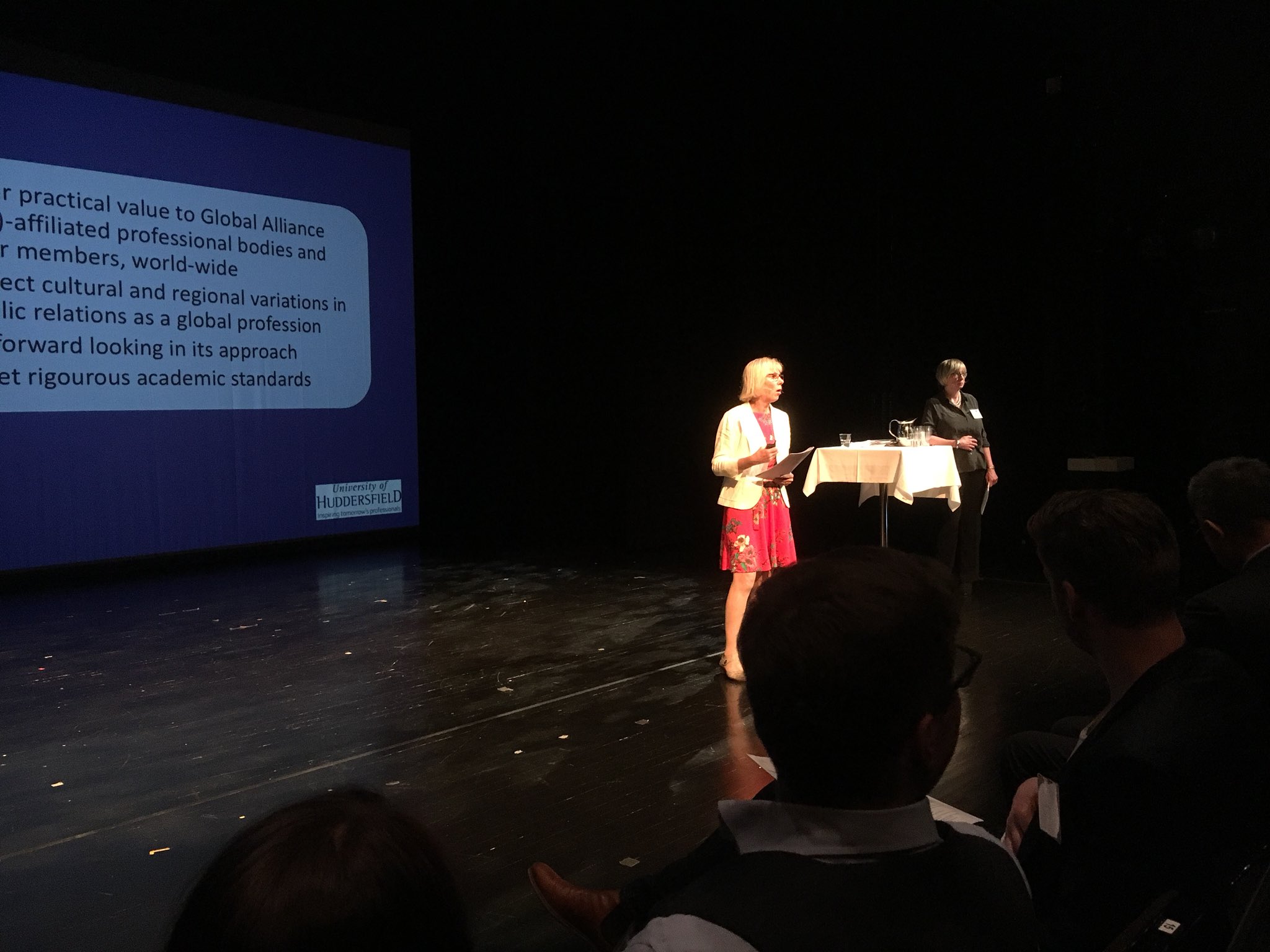I have participated in several joint sessions between academics and practitioners of public relations in the past few weeks: at the Euprera conference in Brussels, I facilitated a Q & A between leading representatives from practice and the academics attending the conference (details here: See Professional Voices #2); the same conference also heard a keynote address from Brendan Hodgson, Director and Head of Digital Practice, Hill & Knowlton Brussels; and the World PR Forum Research Colloquium was attended by approximately 50% practitioners and academics, leading to a range of discussions, including a special session on undergraduate curriculum design.
The following observations are based on these experiences.
1) The first event, a discussion panel of senior practitioners, illustrated the difficulties faced in trying to raise ethical awareness in practice. The participants found it very hard to shift from their corporate positions – understandable given their roles and responsibilities – but disappointing as the focus was on learning from experience. When I gave examples from my own time as a practitioner, distance was swiftly placed between my experience and theirs, even though questions from the floor suggested that most PR academics hear student reports from their internships every year, revealing widespread routine abuses of trust and power. The panelists were unable to accept the reality of such claims., reverting to the old ‘bad apples’ defense. There was also a common reduction of ethics to decisions about which clients to accept; some defended their right to represent tobacco or arms manufacturers, as long as individual employees were free to opt out of such campaigns. One interesting example of an agency exercising its right to reject a client on ethical grounds seemed (details were obviously withheld) to concern a country in the middle east demanding work was completed according to their values rather than those of the agency. Overall, the discussion was lively but demonstrated a determined avoidance of reflexivity. The questions we were asking, as academics at this conference on communication ethics, were clearly not being addressed in contemporary workplaces, on this evidence.
2) The keynote speech from Brendan Hodgson of Hill and Knowlton offered an interesting overview of the wholesale relocation of PR to the digital environment and introduced me to rather scary concepts such as native advertising where the traditional indicators dividing ads from print copy are completely invisible, though Hodgson suggested that it was an insult to the consumer to suggest they couldn’t recognise when online copy in a digital newspace is paid for. One strand of his narrative was the inordinately hard time multinational companies, such as oil and related industries, have when ambushed by dastardly activist groups who distort the whole information process to challenge the assertions published by corporations. Interesting to see them portrayed, over and over, as victims. This was not the only point where the 5:1 (or higher) ratio between PR: journalists was mentioned. The consequences for democracy rarely featured in such discussions.
However, the aspect which drew most ire from the audience was the continual reference to ‘you academics’ and the somewhat patronising tone in which the practices of PR were patiently spelled out. He berated us for obtuse language in a section called Beyond Jargon, which explored the ‘purchasing decision journey’! After one heated exchange, I just asked the audience to indicate how many had practitioner backgrounds; Hodgson seemed very taken aback when about 80% of those present raised their hands. Later, in conversation he was passionate that students should have access to real world practice, apparently unaware that almost all PR courses have mandatory workplace elements.
3) This knowledge was also absent from the discussion on curriculum in which practitioners repeatedly urged academics to move away from theory and make sure students were fully skilled on entry. This discussion was framed almost entirely as a menu of skills required by employers, following on from the US Committee on Public Relations Education reports, most recently The Professional Bond (2006); one comment that the requirement to write, think and communicate were actually those of any competent adult made little impression, nor did contributions about changing frameworks in the UK and Australia for example, which require a range of graduate competence regardless of degree subject, including those prescribed by the report.
Conclusions:
1) Practitioners are still fixated by education as a supplier of skilled entrants, with little regard for the needs of the profession for long-term leadership, acquired through reflection and engagement with a wide range of thought, not just the ability to write a blog. I imagine sometimes the cohorts we could have produced, not so long ago, who were completely up to speed with MySpace.
2) Practitioners seem to have limited time or inclination to reflect on practice, leading to shallow, defensive positions when challenged. This has serious implications for ethics, suggesting that the short term, concrete demands of clients will always win over longer term reflection on values.
3) Academics have failed to explain the realities of the educational world, including the constraints and demands of our institutions and journals, and the opportunities we offer for reflection and engagement with deeper issues of relevance to practice. Given the excellent mix of practice and academics at the WPRF, it might have been helpful to have offered a simple introduction about academic language and the peer review process, for example.
4) Academics have also not clearly explained the actual content of most PR degrees, with their mix of theory and practice, the balance of workplace and classroom (and online) learning and the emphasis on problem solving, team work and project management which will be of far more long term value to employers than technical know how.
Finally, Betteke van Ruler once suggested that practitioners were from Venus, academics from Mars (van ruler 2005) ; in the past decade it does not appear that these bodies are any closer.
Read Full Post »



